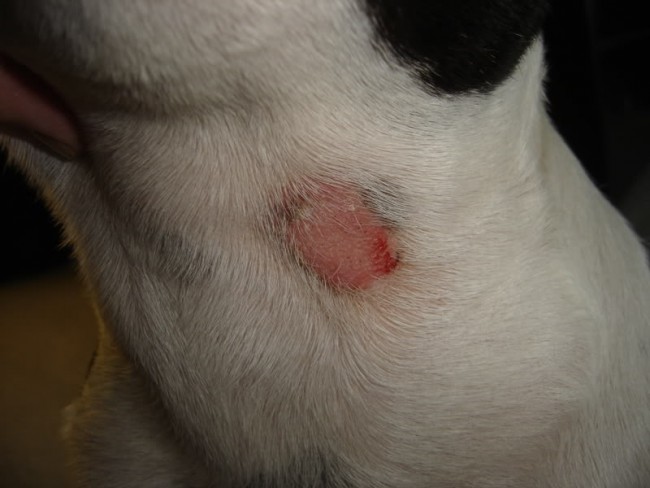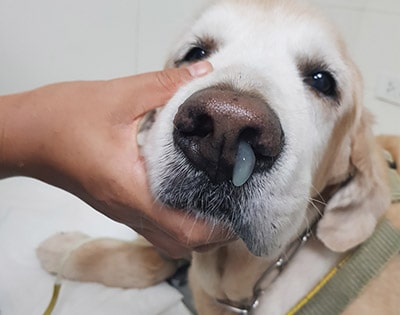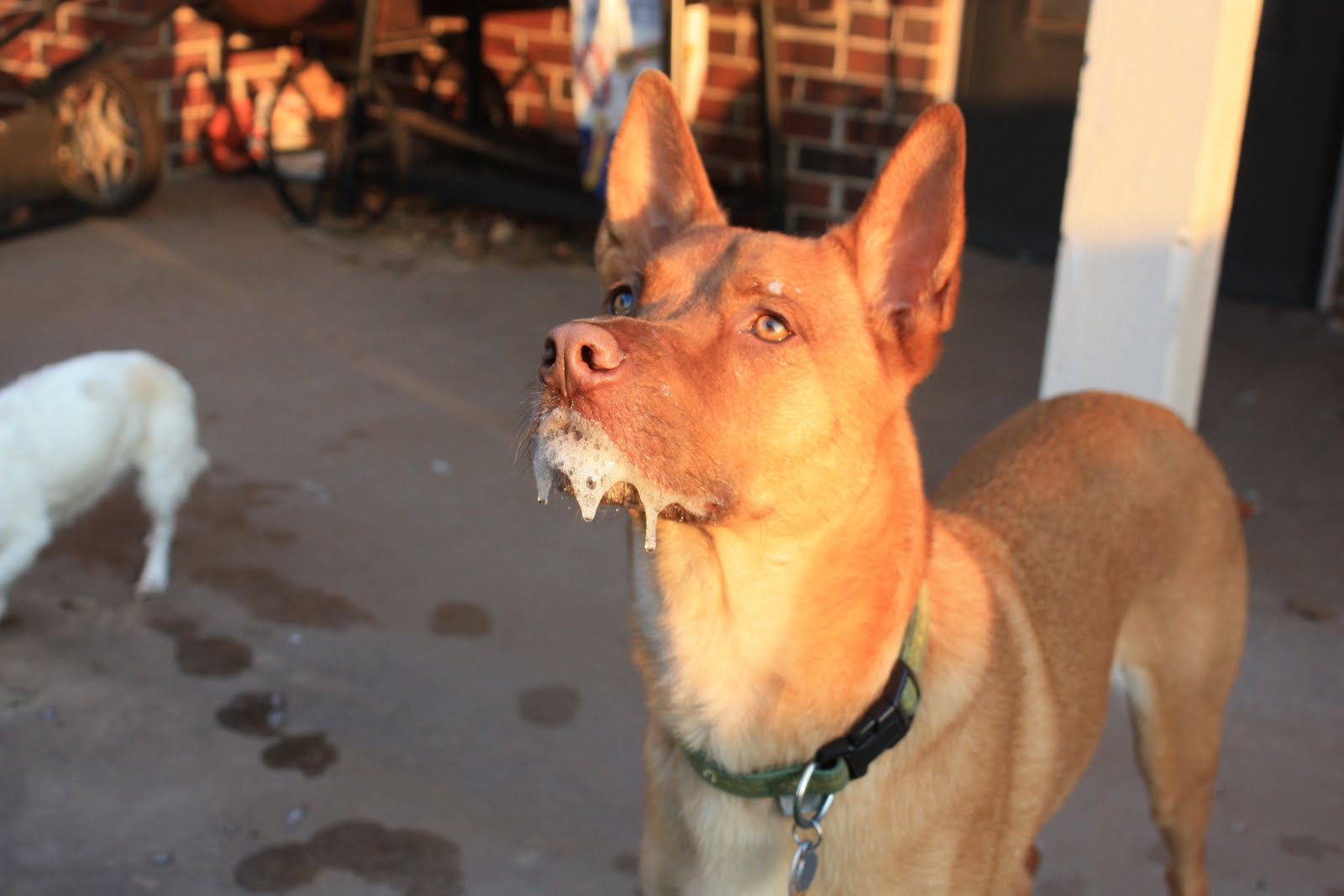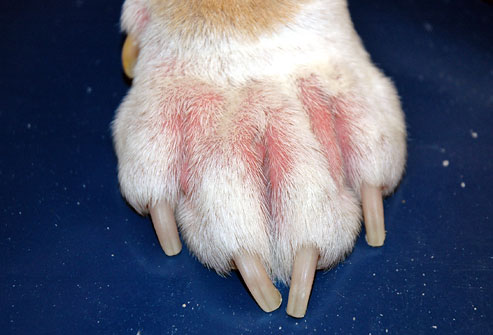Dogs are one of the most popular pets in Malaysia. They are also popular in many households because they provide companionship and unconditional love. Dogs, in addition to being loving, can also serve as watchdogs and guard dogs.
However, some diseases can affect these furry friends, and as a pet owner, you should be aware of these illnesses.
This article will cover the most common dog Diseases in Malaysia, the symptoms to look out for, and what treatment can be expected for your furbabies.

Ringworm
Ringworm is a fungal infection of the skin, hair, and nails. The name is derived from the classic appearance of the round, red, raised 'ring' that is marked on the animals that get infected.
Fun fact: Ringworm is a misleading term because it is not a worm-borne infection, and infected areas are not always ring-shaped.
Ringworm is contagious, and the fungus is transmitted through direct contact. It can be transmitted through direct contact with an infected animal and through touching contaminated objects or surfaces.
However, it’s important to note that contact with the ringworm fungus does not always result in infection. The amount of contamination in the environment and the age of the exposed animal are important factors in the development of a ringworm infection.
Symptoms of ringworm infections in dogs include:
- Hair loss (alopecia) that might be in a circular shape
- Dry and brittle hair
- Inflamed skin with scabs forming
- Rough and brittle claws (for nail ringworm infections)
Treatment for ringworm infections in dogs:
- Topical treatments (to be applied to affected areas)
- Oral medicines (Oral anti-fungal drugs)
- Environmental cleaning (to remove any spores or fungal remains in the dog’s environment)
Prevention methods for ringworm infections in dogs:
- If your dog gets wet, always dry them off because the fungus thrives in moist environments.
- Cleaning your dog's bedding, harness, collar, leash, and toys regularly is essential because the fungus can remain dormant on surfaces for up to 18 months.

Canine Distemper
Distemper in dogs is caused by a paramyxovirus related to the viruses that cause rinderpest and measles. The disease is very contagious and has the potential to be fatal. It infects the host and causes severe illness by attacking multiple body systems, resulting in a widespread infection that is hard to treat.
Dogs can contract canine distemper in three ways: airborne exposure, direct contact with an infected object or animal, or the placenta.
The good news is that if your dogs are up to date on their vaccinations, this isn't a problem because the distemper vaccination is considered a "core vaccine" for dogs. Unvaccinated dogs and puppies under four months are the most vulnerable to this disease.
The symptoms of canine distemper can be very severe and often occurs in two stages:
Stage 1 (Beginning stages of the disease):
- Fever
- Clear nasal discharge
- Eye discharge that contains pus
- Fatigue
- Anorexia
- Wheezing or coughing
- Vomiting and diarrhea
- Brain and spinal cord inflammation
- Swollen feet and hardened paw pads
Stage 2 (Neurological symptoms that the dog develops as the disease progresses and attacks the central nervous system):
- Head tilt
- Circling
- Partial or total paralysis
- Seizures
- Repetitive eye movements
- Twitching of muscles
- Convulsions accompanied by drooling and chewing motions
Unfortunately, there is no cure for canine distemper, but your veterinarian may provide symptom relief and supportive care such as the following:
- Antibiotics
- Painkillers
- IV nutrition
- Fever suppressors
- Seizure medications
Prevention of canine distemper:
- Make sure that your puppy or dog has received the entire course of distemper vaccinations
- Never skip scheduled vaccination appointments
- Be cautious when socialising with unvaccinated dogs, dogs from the animal shelter or with big groups of dogs
.jpeg)
Kennel cough
Kennel Cough, also known as infectious tracheobronchitis in dogs, is a common illness. The illness is extremely contagious and is caused by viral and bacterial infections that attack the animal's respiratory system. The term ‘Kennel Cough’ refers to animals in shelters or boarding kennels exposed to overcrowded, enclosed, and inadequately ventilated environments that are the most vulnerable to this disease. Dogs which spend a lot of time in public places with other dogs, such as the dog park, are more likely to contract it because this disease spreads through object contamination and air.
Regardless of how well-ventilated it is, excessive levels of smoke or dust in the living environment can also cause this illness.
The good news is that this disease is not life-threatening and should clear up in healthy dogs in one to three weeks. However, in severe cases, the condition may lead to pneumonia.
Symptoms of Kennel cough in dogs:
- Lack of energy
- Honking (forced coughing)
- Lethargy
- Sneezing excessively
- Retching or gagging
- Coughing up white mucus
- Fever
- Excessive nasal discharge
- Lymph nodes that are swollen or painful
- Appetite loss
- Loss of weight
- Crusty and/or watering eyes
Treatments prescribed for dogs with Kennel cough:
- Adequate rest
- Antibiotics
- Cough medicine
Prevention of Kennel cough:
- Ensure that your dog's living quarters are well-ventilated and clean.
- Obtain a vaccination against the Bordetella bacterium, which causes Kennel cough in dogs'

Rabies
Rabies is a fatal virus that infects the brain and spinal cord. It is also a zoonotic disease that can be transmitted from animals to humans. In fact, dogs are one of the most common sources of rabies in humans.
This disease is transmissible through saliva. If your dog is bitten by another dog infected with rabies, the virus will enter the bloodstream and infect your pet. While rabies is preventable and even treatable if caught early, the virus is fatal once symptoms appear. The window for saving your rabies-infected pet is very narrow. As a result, it is critical to seek medical attention as soon as possible.
The first sign of rabies infection in dogs is a change in temperament. Following that, there are two recognised forms of rabies, each with its symptoms: paralytic (dumb) rabies and furious rabies.
Symptoms of paralytic (dumb) rabies in dogs include:
- Progressive limb paralysis
- Face distortion
- Difficulty in swallowing
Symptoms of furious rabies in dogs include:
- Becomes aggressive
- Extremely excitable
- Depraved appetite
- Consuming and chewing stones and garbage
- Paralysis
The best way to prevent rabies in dogs is to:
- Make sure your pet is vaccinated against rabies
- Avoid contact with wild animals

Skin diseases
Skin problems in dogs were discovered to be the most common reason for veterinarian visits in a Korean study. In the study discovered that skin problems primarily affected smaller breeds such as Maltese, Poodle, Shih Tzu, and Pomeranians, which are all popular dog breeds in Malaysia.
Atopic dermatitis (atopy) is a common allergic condition affecting dogs' skin. The allergen lists for atopic dermatitis in dogs are endless and can include anything from dust mites to their diet to plant pollen.
The most challenging aspect of atopy is identifying a specific allergen. If not properly diagnosed, your pet may be itching for the rest of its life.
Symptoms of atopy include:
- Incessant scratching
- Chewing and licking of the skin
Treatments for atopy:
- Prescription medicines to help with the itchiness and inflammation of the skin
There is no way to prevent atopy before symptoms appear.
But when they do, there are several things you can do to help your dog:
- If unsure of the allergen causing the problem, use the trial and error method. Begin with their surroundings and progress to their diet.
- Consult your veterinarian about whether a skin allergen test or blood work for your dog is necessary.
- Monitor your pet and note if the allergies are only seasonal or if your dog itches every day
- Give your pets anti-inflammatory supplements like the Omega-3 Fish Oil (after consulting your vet, of course)
.jpeg)
Ear infections
Ear disease affects roughly 20% of dogs. It is prevalent in floppy-eared breeds like Shih Tzus and Cocker Spaniels. The most common ear disease in dogs is otitis externa, where the outer area of the ear becomes inflamed. The veterinarian should be able to diagnose the cause of the infection by taking a few swab samples from the dog’s ear and examining them under a microscope.
Symptoms of an infected dog ear are:
- Redness of the ear canal
- Flaky and crusty skin around the ear canal and opening
- Brown discharge from the ear canal
- Bad odour
- Restlessness
- Constant scratching around the ear
Treatment for ear infections:
- Vet-prescribed ear cleanser
- Ear drops or medicated ointment
- Antibiotics
- Anti-inflammatory medicine
Ear infection prevention in dogs:
- If your dog has floppy ears, frequent and gentle ear cleaning can help prevent ear infections.
- Remember to completely dry your dog's ears after bathing to prevent moisture from remaining in their ears.

In pets, heartworm disease causes severe heart failure, organ damage, lung disease, and death. Dirofilaria immitis is the disease-causing parasitic worm. Mosquito bites transmit the disease. While inside the dog, the worms mature, mate, and reproduce.
The term "heartworms" came from the fact that adult worms live in infected animals' heart, lungs, and blood vessels.
The heartworm lifecycle can be viewed here. There are no visible symptoms to be noted in the early stages of infection. However, as the infection progresses, the symptoms will become more apparent.
Symptoms of middle to later stages of heartworm disease include:
- Persistent mild cough
- Exercise aversion
- Fatigue
- Reduced appetite
- Loss of weight
- Heart disease
- Swollen stomach caused by an excess of fluid in the abdomen
- Caval disorder (a form of cardiovascular collapse)
Treatment for heartworm disease in dogs:
- Perform tests to confirm the diagnosis
- Vet-prescribed medicine administered through injections
- Surgery to remove worms from the heart and lungs (if there are too many)
Prevention methods for heartworm disease in dogs:
- Make sure to give your dogs heartworm prevention supplements monthly
- Annual vet visits are recommended to ensure that your dog is not infected

Leptospirosis
Leptospirosis is a bacterial infection that causes kidney and liver damage in dogs. Bacteria multiply in the bloodstream and gather in these vital organs. If left untreated, leptospirosis can be fatal. The bacteria spread through an infected animal's urine and can survive in damp soil or stagnant water for extended periods, infecting dogs who come into contact with it. Because leptospirosis is a zoonotic disease, pet owners can contract it from their dogs.
Symptoms of leptospirosis in dogs:
- Fever
- Shivering
- Tenderness of the muscles
- Reluctance to move
- Increased thirst
- Changes in urination frequency or amount
- Dehydration
- Vomiting
- Diarrhoea
- Appetite loss,
- Lethargy
- Jaundice (yellowing of the skin))
- Inflammation of the eye
Treatment for dogs with leptospirosis:
- Fluid therapy to aid with dehydration
- Antibiotics
- Hospitalisation for severe cases
Preventative measures for leptospirosis:
- Annual vaccination
- Keep an eye on where your dog goes and keep them away from stagnant or damp soil
Conclusion
It can be scary to see the diseases your dog can contract, but it is equally important to be aware of the warning signs. All the common diseases in Malaysia mentioned above have one thing in common: they are all preventable with the proper vaccinations and annual checkups. As a dog owner, your responsibility is to keep your dog healthy and free of diseases that can be avoided with a vaccine.
However, we understand that the costs associated with these diseases can be very high, and we are here to assist you. Oyen's Preventative Care provides basic health checks for your dog at an affordable price.
Remember - prevention is always better than cure!

















